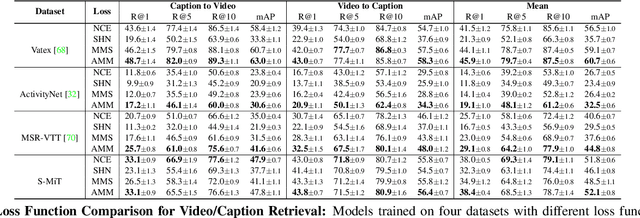Spoken Moments: Learning Joint Audio-Visual Representations from Video Descriptions
Paper and Code
May 10, 2021



When people observe events, they are able to abstract key information and build concise summaries of what is happening. These summaries include contextual and semantic information describing the important high-level details (what, where, who and how) of the observed event and exclude background information that is deemed unimportant to the observer. With this in mind, the descriptions people generate for videos of different dynamic events can greatly improve our understanding of the key information of interest in each video. These descriptions can be captured in captions that provide expanded attributes for video labeling (e.g. actions/objects/scenes/sentiment/etc.) while allowing us to gain new insight into what people find important or necessary to summarize specific events. Existing caption datasets for video understanding are either small in scale or restricted to a specific domain. To address this, we present the Spoken Moments (S-MiT) dataset of 500k spoken captions each attributed to a unique short video depicting a broad range of different events. We collect our descriptions using audio recordings to ensure that they remain as natural and concise as possible while allowing us to scale the size of a large classification dataset. In order to utilize our proposed dataset, we present a novel Adaptive Mean Margin (AMM) approach to contrastive learning and evaluate our models on video/caption retrieval on multiple datasets. We show that our AMM approach consistently improves our results and that models trained on our Spoken Moments dataset generalize better than those trained on other video-caption datasets.
 Add to Chrome
Add to Chrome Add to Firefox
Add to Firefox Add to Edge
Add to Edge